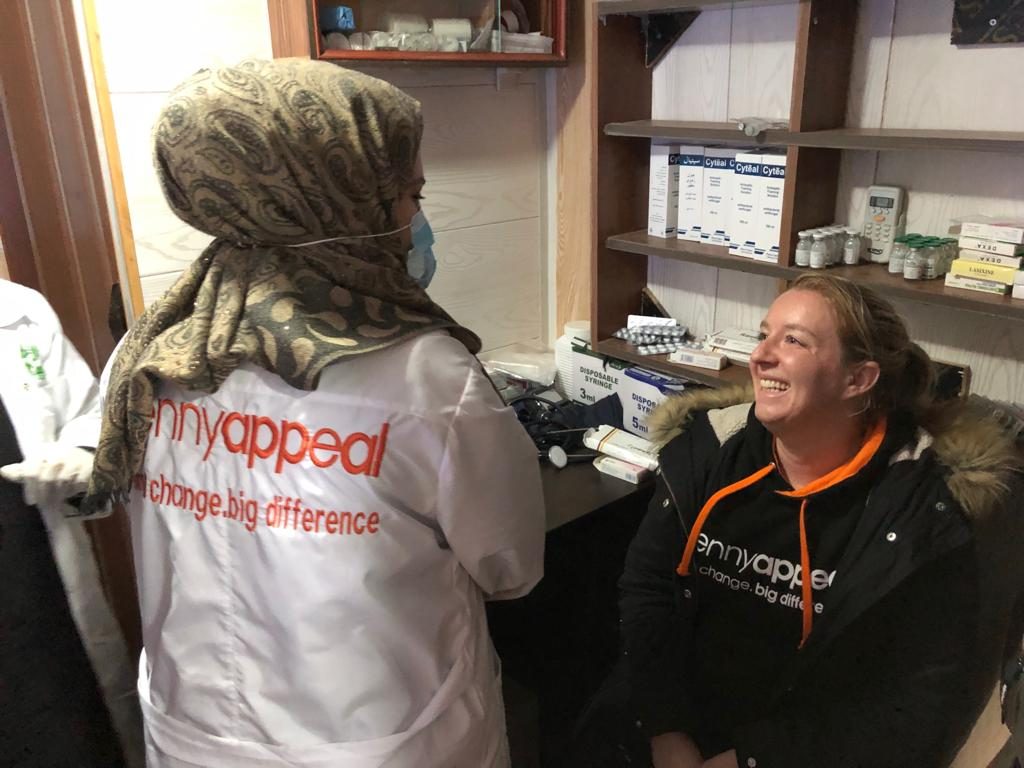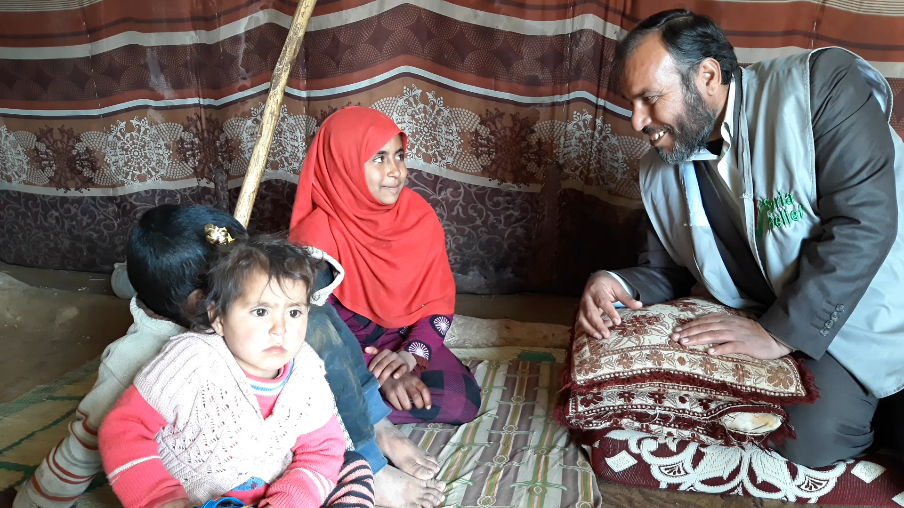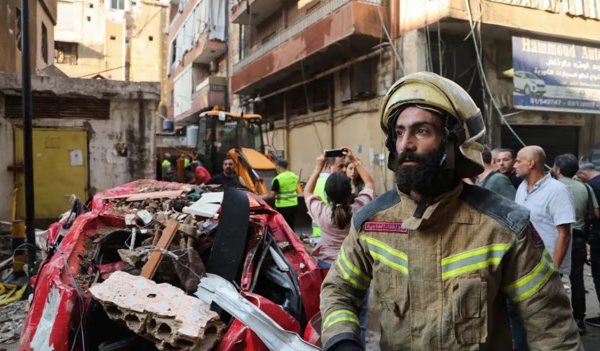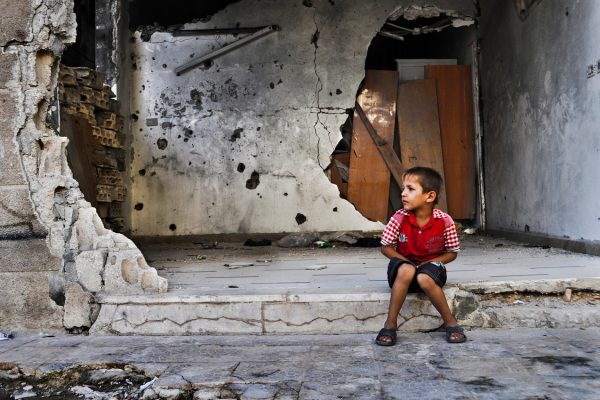We arrived in the city of Raqqa during the night, early but dark. There were no street lights, no lights from any homes, just a lingering gloominess; street after street.
We arrived in the city of Raqqa during the night, early but dark. There were no street lights, no lights from any homes, just a lingering gloominess; street after street.
Sometimes it’s difficult to find the right words.
That couldn’t more true than trying to describe my trip to Raqqa, the recently liberated stronghold capital of one of the most brutal regimes the world has ever known.
You can see all the images of the devastation, you can read all the news articles, and you can talk to all your contacts. But nothing will prepare you for seeing and experiencing it for yourself.
The country has been ravaged by war for almost a decade, devastating cities and lives. The world of every Syrian has been thrown upside down. Millions have been forced to leave their homes, living as refugees in Lebanon, Turkey and around the world. But it is estimated that 18 million people still live in Syria; over a third of whom are internally displaced, living in camps and makeshift shelters.
These are the Syrians who stayed through 8 years of war; sometimes by choice, but often not.
We arrived in the city of Raqqa during the night, early but dark. The streets were eerily quiet. The only people we passed were the Kurdish soldiers at the city checkpoints. There were no street lights, no lights from any homes, just a lingering gloominess; street after street.
We stepped out of the van when we arrived at the only building in Raqqa city that had lights (backed up by 24/7 generators); the Maternal and Children Hospital, run by Penny Appeal’s partner on the ground, Syria Relief.

I spent over a week in Raqqa, staying at the only free, newly rehabilitated, maternal hospital in the city. There used to be many hospitals, but when ISIS was annihilated and pushed out of the city in 2017, nearly 80% of the city was destroyed along with them. The hospital sees 20-30 births every single day, and it is equipped with 18 incubators. The hospital is buzzing with life, new life coming every day, mothers, children, and babies being supported, who otherwise would have had no facilities to survive.
We spent our days with the mobile health clinic. With 60% of Syrian hospitals now closed, millions of people have been left extremely vulnerable; especially the 6.5 million internally displaced persons (IDP) in Syria.
The living conditions in the IDP camps are overcrowded and unsanitary. In many camps, there is little medical support; any support which is available is often too expensive for people to actually use. Women and children are hit the hardest; pregnant women face giving birth in squalid conditions without medical assistance.
Penny Appeal is running a mobile Maternal and Baby Health Unit in Syria, to help provide essential pre and post-natal care to mothers and babies, as well as gynecological support for women, so that Syrian women can keep themselves and their children healthy. In January alone we have supported 1,300 women and children.
One of the people we helped in an internally displaced camp was 11-year-old Asma, whose father had drowned in an irrigation canal while he was trying to collect some drinking water. When we met Asma through our Mobile Health Clinic, she was showing a lot of symptoms of depression. She had physical manifestations of severe stomach aches, weight loss, and swelling, and she also felt a deep sadness about the loss of her father.
As well as helping Asma with her physical symptoms, we also worked to help her overcome her trauma. After many attempts, the team managed to build trust with her thanks to the support of her grandfather, she started to talk about her story.
The team asked Asma’s family to keep her away from the area where the accident happened, move their tent to a place far from the canal, and try to get her out of this mental state gradually by changing her environment and making sure she had opportunities to talk about how she was feeling.

During my time in Syria, I also witnessed Penny Appeal’s winter distributions where we were provided families in rural Raqqa with blankets, food baskets (to last one month), and hygiene kits. Altogether we supported 800 families.
One evening while in Raqqa we visited some families. It was hard to not be shocked by how they were forced to live. I sat with a family of eight (with a six-month baby) in a tent that they had pitched in an abandoned and destroyed park. I had four layers on and was still cold, but there was a gentle glow of warmth provided by the stove we had distributed last month. All they needed was more diesel to keep the warmth there. Some families had even resorted to burning plastic in order to keep warm.
I saw museums and hospitals and homes in rubble, wherever I looked. I saw people who had stayed in their beloved country, only to see it destroyed. I saw families doing everything it takes, and only barely surviving.
I hear that Syria used to be beautiful.
Sometimes it’s difficult to find the right words; it’s even harder to find the right thing to do. At times, it feels like we’re putting a plaster on a gaping wound in Syria. But then I remember Asma, and I know that we actually are making a big difference.
In the dark, quiet streets of what once was a bustling city, full of life, I came close to understanding what has been lost.
It may be difficult, but one thing is clear.
The Syrians who stayed really do need our help.
Find out more about Penny Appeal here.
You can support our Mobile Health Unit here so that we can reach more internally displaced people around Syria.





